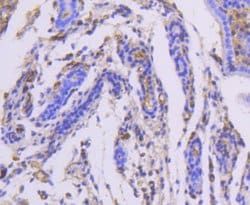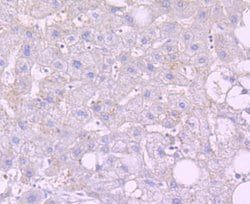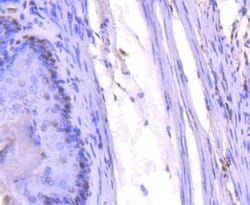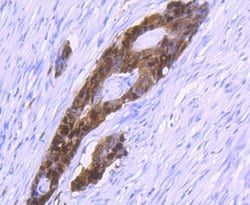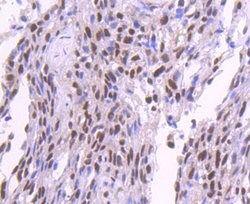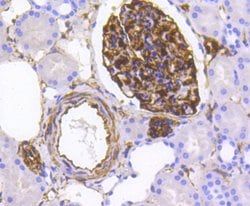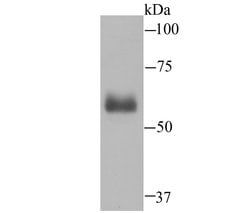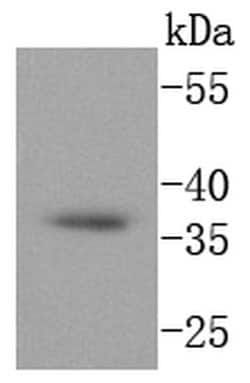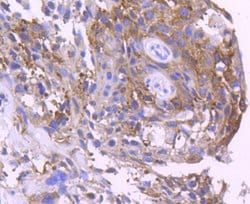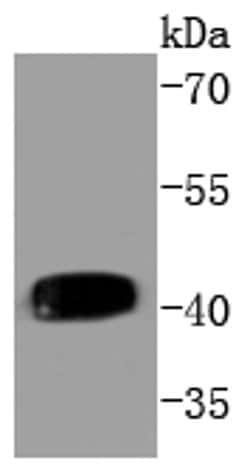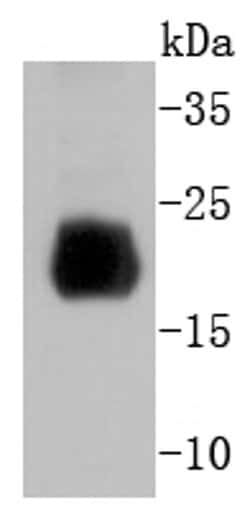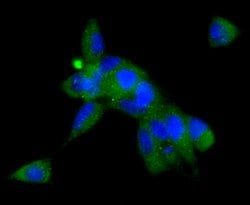14-3-3 sigma Recombinant Rabbit Monoclonal Antibody (SD2070), Invitrogen™
Manufacturer: Thermo Scientific
Select a Size
| Pack Size | SKU | Availability | Price |
|---|---|---|---|
| Each of 1 | PIMA532368-Each-of-1 | In Stock | ₹ 51,753.50 |
PIMA532368 - Each of 1
In Stock
Quantity
1
Base Price: ₹ 51,753.50
GST (18%): ₹ 9,315.63
Total Price: ₹ 61,069.13
Antigen
14-3-3 sigma
Classification
Monoclonal
Concentration
1 mg/mL
Formulation
TBS with 0.05% BSA, 40% Glycerol and 0.05% sodium azide, pH 7.4
Gene Accession No.
O70456, P31947
Gene Symbols
SFN
Immunogen
Synthetic peptide within Human 14-3-3 sigma aa 50-99
Quantity
100 μL
Primary or Secondary
Primary
Target Species
Human, Mouse, Rat
Product Type
Antibody
Isotype
IgG
Applications
Immunohistochemistry, Western Blot
Clone
SD2070
Conjugate
Unconjugated
Gene
SFN
Gene Alias
14-3-3 protein sigma, 14-3-3 sigma, 14-3-3 sigma protein, 14-3-3sigma, epithelial cell marker protein 1, Er, HGNC:10773, HME1, Mkrn3, Mme1, SFN, Stratifin, tyrosine 3-monooxygenase/tryptophan 5-monooxygenase activation protein, sigma polypeptide, Ywhas
Host Species
Rabbit
Purification Method
Protein A
Regulatory Status
RUO
Gene ID (Entrez)
2810, 313017, 55948
Content And Storage
Store at 4°C short term. For long term storage, store at -20°C, avoiding freeze/thaw cycles.
Form
Liquid
Description
- Recombinant rabbit monoclonal antibodies are produced using in vitro expression systems
- The expression systems are developed by cloning in the specific antibody DNA sequences from immunoreactive rabbits
- Then, individual clones are screened to select the best candidates for production
- The advantages of using recombinant rabbit monoclonal antibodies include: better specificity and sensitivity, lot-to-lot consistency, animal origin-free formulations, and broader immunoreactivity to diverse targets due to larger rabbit immune repertoire
- This gene encodes a cell cycle checkpoint protein
- The encoded protein binds to translation and initiation factors and functions as a regulator of mitotic translation
- In response to DNA damage this protein plays a role in preventing DNA errors during mitosis.
